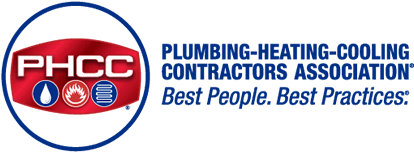For Immediate Service Call 513-574-0025
or Send a TEXT

As of this writing, the Center for Disease Control (CDC) reports that there are 106 confirmed cases of U.S. citizens infected by what is called COVID-19, which stands for the year the coronavirus disease was discovered. Contractors need to consider additional steps to protect employees to the extent they can. McCarthy Tétrault LLP (2020) writes in his article, Coronavirus – Advice for Employers Preparing for the Worst, “previous health scares such as SARS and H1N1, employers should consider what steps, if any, they may need to take if the current situation escalates.” (Retrieved from the World Wide Web on February 28, 2020, here). (I included many of Tétrault’s suggestions below given most were good to share.)
The biggest takeaway for me is that regular communication and having a plan are critical steps that contractors should take. Given that plumbers and HVAC technicians are in regular contact with the general public, many of whom travel abroad, they need up-to-date information about how to best protect themselves (and their families) and understand employer policies and procedures to follow. As Becky Norman (2020) writes in her article, Coronavirus: How should HR prepare?, “Waiting for the infection to arrive before thinking about your approach to the situation could contribute to its outbreak and spread within your business and wider community.” (Retrieved from the World Wide Web on February 28, 2020, here .
Source:
https://news.yahoo.com/coronavirus-155943250.html
https://www.lexology.com/library/detail.aspx?g=79bfc10f-0529-41f7-9ac1-eca5ab27a912
https://www.hrzone.com/lead/strategy/coronavirus-how-should-hr-prepare
Coronavirus Guidelines from PHCC—National Association
By Michael R. Copp, Executive Vice President
With the spread of the COVID-19 (Coronavirus) pandemic, we are all concerned with the potential for conditions to worsen. It is vitally important that PHCC members take the appropriate steps to reduce the impact of the outbreak on your business, workers, customers and the public. A list of helpful resources is provided below to help you effectively manage your business--and protect public health and safety--during this rapidly evolving situation.
Employer Resources
Coronavirus Considerations for Contractors (EVP Team Brief—March 4, 2020)
Covers important steps related to prevention, containment, planning, decision-making, security and communications.
Workplace Do's and Don'ts—COVID-19 Coronavirus (Legally Speaking--Taft/Law)
The rights and obligations of employers in day-to-day situations.
General practices to help prevent worker exposure and information to deal with:
CDC Coronavirus Disease 2019 Website
Safety tips, situation updates, disease background.
Coronavirus Guidance for Plumbers (IAMPO White Paper—March 11, 2020)
Implications for those who work in the plumbing industry and steps to stay safe.
8 Questions Employers Should Ask About the Coronavirus
(Harvard Business Review—March 2, 2020)
What to ask to prepare for—and respond to—the spread of the virus.
Navigating the Coronavirus: Best Practices for Employers—(Laner Muchin™—March 3, 2020)
How to address the impact of the virus on the workplace and what employers can and cannot do.
In addition, PHCC provides these suggested practices:
The Status at PHCC—National
As most of you know, PHCC—National is based in Falls Church, Virginia, a suburb of Washington, D.C., which now has a "State of Emergency" status. PHCC—National Association is taking steps to minimize any impacts on our operations and the services provided to PHCC members. If the Coronavirus spreads, PHCC—National is equipped to work remotely so that we can continue to serve our members' needs. A transition like this would be quite seamless.
We also are closely monitoring how the COVID-19 situation could impact attendance at PHCC events, such as the Legislative Conference in May. Please know that we will be posting updates on the website of any proposed changes to the programming. This week, PHCC's Quality Service Contractors is meeting in person at Power Meeting 2020 in San Diego, California. However, the PHCC Educational Foundation's Essentials of Project Management course, scheduled for March 18-21, 2020, has been canceled. The goal is to conduct the class later in the year.
More updates will follow as needed. In the meantime, please email customercare@naphcc.org with any questions or concerns.
Stay safe!
Call Us At 513-574-0025.
”
February 9, 2026
January 27, 2026
Your commercial HVAC system is the unsung hero of your building — keeping employees comfortable,
6561 Glenway Avenue, Cincinnati, Ohio 45211 | 513-574-0025 | Privacy | Financing
The Geiler Company Copyright 2026. All Rights Reserved